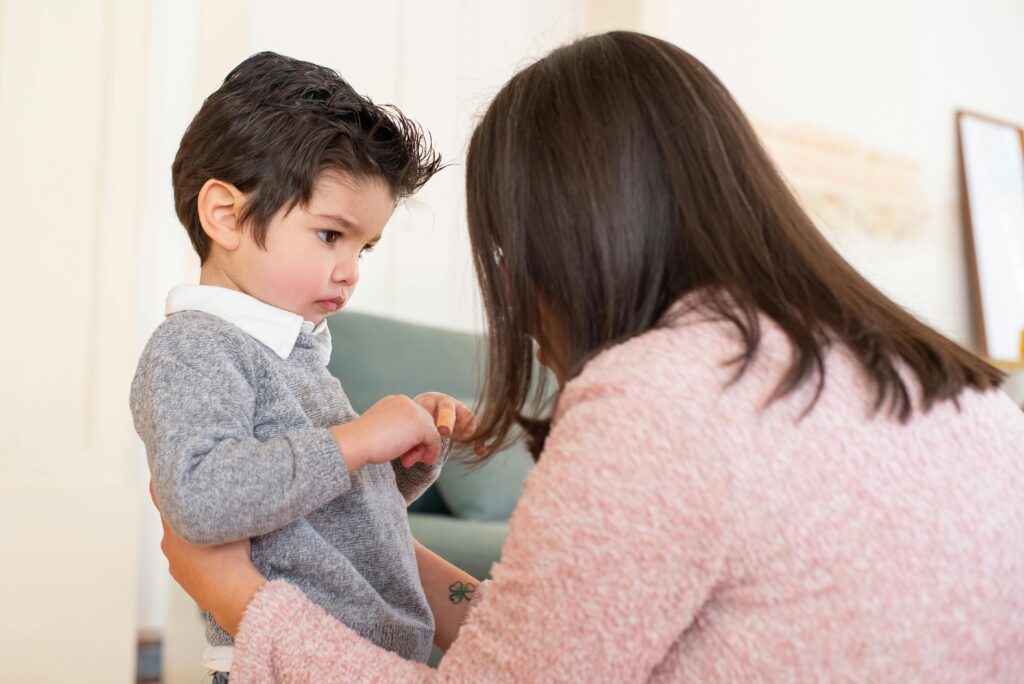Helping Kids with ADHD: Practical Parenting Tips
Guest article provided by empathyhealthclinic.com
Managing ADHD in children can be challenging. Learn practical tips and local resources in Orlando to support your child’s development and wellbeing.
Understanding ADHD and Its Impact

Photo by Pexels
Attention Deficit Hyperactivity Disorder (ADHD) is a neurodevelopmental disorder characterized by a pattern of inattention and/or hyperactivity-impulsivity. These symptoms can interfere with functioning or development. For parents in Orlando, it’s essential to understand that ADHD affects every child differently. Some may struggle with focusing on tasks, while others may find it hard to sit still or wait their turn.
The impact of ADHD extends beyond the child’s academic performance. It often affects their social interactions and can lead to difficulties in establishing and maintaining friendships. It may also disrupt family dynamics, as parents find themselves constantly mediating fights or correcting behavior. Recognizing these impacts allows you to tailor parenting strategies that address specific challenges facing your child.
Healthcare providers in Orlando emphasize early diagnosis and intervention. Understanding the nuances of ADHD can help parents make informed decisions about possible treatments. Local organizations offer various resources, including support groups and educational workshops, to further educate families about ADHD. Importantly, each approach must be individualized to meet the specific needs of your child.
Recognizing ADHD Symptoms Early

Photo by Pexels
Recognizing ADHD symptoms early can be crucial for a child’s development. Common symptoms include forgetfulness in daily activities, difficulty organizing tasks, excessive talking, and an inability to sit still. For children in Orlando schools, teachers and parents are often the first to notice these signs.
Florida’s healthcare system allows parents to consult with pediatricians and specialists who can diagnose ADHD accurately. If you suspect your child may have ADHD, the first step is to document behaviors that are concerning. Gather feedback from teachers and babysitters since they observe your child in different settings.
Once you have a detailed record, consider scheduling an evaluation with a local specialist. Early identification can lead to more effective interventions. Involve your child’s school in the process, as they can offer educational accommodations under Section 504 of the Rehabilitation Act. This federal law requires schools to provide equal access to education for students with disabilities. By recognizing symptoms early, parents can manage ADHD proactively, improving outcomes for their child and family.
ADHD Treatment Options in Orlando
ADHD treatment often involves a combination approach, including medication, behavior therapy, and educational support. In Orlando, parents have access to several ADHD specialists and clinics, which provide comprehensive assessments and treatment plans tailored to individual needs.
Medication is often the first line of treatment. Common prescriptions include stimulants like Adderall and Ritalin, which help increase attention and decrease impulsiveness and hyperactivity in children. It’s important for parents to work closely with their child’s healthcare provider to monitor the effects and adjust dosages as needed.
Behavioral therapy focuses on helping children manage their behavior by reinforcing positive actions and teaching effective coping techniques. Orlando boasts various clinics offering cognitive behavioral therapy (CBT), a highly effective form of treatment for ADHD. Engaging with these specialized therapists can significantly improve a child’s social skills, academic performance, and family relationships.
Moreover, schools in Orlando provide Individualized Education Programs (IEPs) to support children with ADHD. These programs are tailored to meet a student’s unique learning needs through accommodations and modifications. By considering a holistic treatment plan that involves both medical and educational strategies, parents can more effectively support their child’s success.
Practical Tips for Daily Routines
Creating structured daily routines can have a significant positive impact on children with ADHD. Consistency helps children with ADHD feel more secure and focused. Start by setting a regular schedule for waking up, meals, homework, and bedtime.
Introduce visual schedules or checklists to give children a clear understanding of what their day will look like. These tools are especially helpful because they provide concrete steps, aiding children who often struggle with remembering tasks.
Incorporating time for physical activity is also crucial. Activities such as playing at local parks in Orlando or joining sports teams can help channel excess energy in a positive way, improve concentration, and promote better sleep patterns.
Make sure to allow some downtime to help your child unwind. This could include reading, drawing, or listening to music. The key is to balance structured activities with free time. Gradually teaching your child self-regulation skills, such as using timers for tasks, can also foster independence and help manage ADHD symptoms effectively.
Enhancing Communication Skills
Effective communication is crucial for children with ADHD, as they may struggle to articulate their thoughts or follow conversations. Improving these skills can help them interact better with both peers and adults.
Start by practicing active listening. Encourage your child to pause, think, and then speak. Role-playing different scenarios can be a fun and engaging way to practice these skills. Promote the use of ‘I’ statements to help them express feelings without assigning blame, such as ‘I feel upset when…’.
Parents can also work with speech therapists in Orlando who specialize in social communication. These professionals offer strategies tailored to children with ADHD, focusing on improving listening skills, understanding non-verbal cues, and maintaining topic coherence in conversation.
In the home environment, having regular family discussions can encourage open dialogue. This practice helps children to feel valued and heard, promoting a sense of belonging. By enhancing communication skills, children with ADHD can better navigate social environments, resulting in improved self-esteem and relationships.
Using Technology to Aid ADHD Management
Technology can be an effective tool in managing ADHD symptoms, especially with the plethora of apps designed to aid concentration and organization. Parents can leverage these tools to help their children establish effective routines and enhance focus.
Educational apps like ‘Khan Academy’ offer interactive ways to learn and can be particularly useful for children with ADHD who may require engaging learning methods. Other apps, such as ‘Todoist’ or ‘Remember the Milk,’ help in setting reminders and managing tasks, keeping your child organized throughout the day.
However, it’s crucial to monitor screen time to avoid overstimulation. Set clear limits around device usage, ensuring screen-free time before bed to promote better sleep habits.
Apps like ‘Calm’ or ‘Headspace’ offer guided meditations that can help children relax, enhance mindfulness, and reduce stress, contributing positively to overall ADHD management. By using technology purposely, parents can provide structured support while fostering independence in their child’s daily routines.
Building a Support Network
A robust support network is invaluable for families navigating ADHD. Communities in Orlando provide various opportunities for connection and support, allowing families to share experiences and strategies.
Engage with local support groups such as CHADD (Children and Adults with Attention-Deficit/Hyperactivity Disorder), which offer meetings and resources tailored for families dealing with ADHD. These groups can provide emotional support, practical advice, and up-to-date information on ADHD.
In addition to local organizations, online forums and social media groups also offer a platform for parents to share their experiences and support each other. This connectivity can alleviate feelings of isolation or frustration, knowing others face similar challenges.
Involve family members, teachers, and therapists in creating a support system around your child. Open communication with those involved in your child’s daily life ensures everyone is on the same page, resulting in a consistent approach to managing ADHD.
Navigating School Accommodations
Navigating school accommodations for a child with ADHD requires understanding the available legal frameworks and resources. In Florida, students with ADHD might qualify for an Individualized Education Program (IEP) or accommodations under Section 504.
An IEP ensures customized learning strategies and resources tailored to a child’s unique needs. This may include extended test times, alternative teaching methods, or special seating arrangements. The process begins with a parent’s formal request to the school for evaluation.
Section 504 provides broader support for students who don’t meet a disability’s strict criteria under IDEA but still require accommodations. It ensures access to the same educational opportunities as peers.
Regular meetings with educators and school counselors are critical to review progress and make necessary adjustments. Parents in Orlando should stay informed about the specific processes and timelines in their school district.
By actively participating in their child’s education planning, parents can ensure their child receives the necessary support to succeed academically and socially.
✓Quick Action Checklist
- ☐Step 1: Document observed symptoms and behaviors.
- ☐Step 2: Schedule an evaluation with a local ADHD specialist.
- ☐Step 3: Work with the school on IEP or 504 plans.
❓Frequently Asked Questions
What are common ADHD symptoms in children?
Symptoms include inattention, hyperactivity, and impulsivity. These can vary widely between children.
How is ADHD diagnosed?
Diagnosis is through a comprehensive evaluation by a healthcare professional, often involving behavioral checklists and parent/teacher feedback.
Can diet affect ADHD symptoms?
Some studies suggest that certain food additives and sugar might exacerbate symptoms, but more research is needed.
Are there local resources in Orlando for ADHD support?
Yes, organizations like CHADD and local clinics offer resources and support for families.
Is medication necessary for ADHD management?
Medication can be helpful but is not always required. Many children benefit from a combination of therapy, lifestyle changes, and medication.
Conclusion
Parents of children with ADHD face unique challenges, but with the right strategies and support, these can be successfully managed. Utilizing the resources available in Orlando, from healthcare providers to local support groups, can greatly enhance your child’s ability to thrive. Remember, every child’s journey is unique, and a tailored approach will help your child reach their full potential. For personalized support and guidance, book an appointment with Empathy Health Clinic today.
Additional Resources
Ready to Get Started?
Take the first step toward better health today. Our experienced team at Empathy Health Clinic is here to provide personalized care and support for your healthcare needs.
Leave a Reply